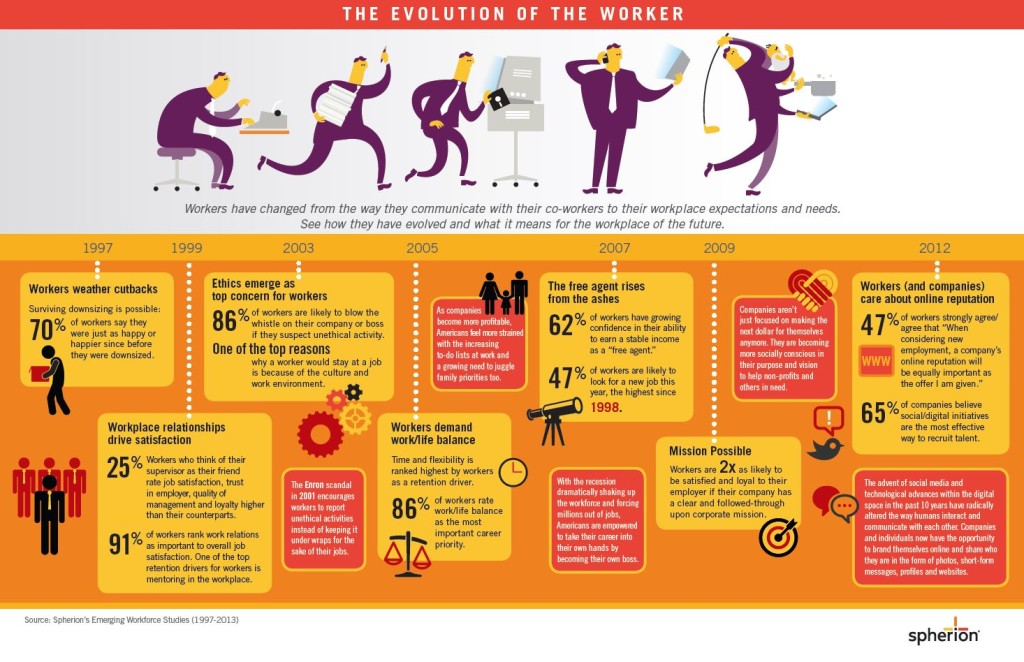I’m a sponsored blog partner with Spherion (a staffing and recruiting organization) and am participating in the release of findings from Spherion’s upcoming Emerging Workforce Study. All opinions are mine.
Emerging workforce trends should be top-of-mind for both HR professionals and senior leadership in any organization. That’s why it’s so helpful when industry leaders in the talent management field conduct research to help time-pressed company leaders figure out what workforce issues may be on the horizon for their own organizations. For example, for over 15 years staffing expert Spherion has conducted research to report important workplace trends as they emerge.
With a database of over 200,000 workers surveyed, Spherion shares interesting statistics and trend information for HR managers and businesses, as well as providing tips on how to bridge the widening gap between employers’ and employees’ views. The survey also includes data on generational differences, work-life balance and how social/digital media can impact HR strategies to increase engagement, productivity and retention, among other topics important to the workplace.
This infographic sums up some of the most compelling findings from Spherion’s newest Emerging Workforce Study, scheduled to be released in early April.
Want a closer look? Click The Evolution of the Worker to view a PDF version of the infographic.
Here are some additional study findings that caught my eye:
91% of workers agree that having a predictable work schedule makes a job “somewhat” to “much more” attractive and 63% believe changing jobs every few years is usually damaging to a person’s long-term career advancement.
That seems to fly in the face of the conventional wisdom that says that Gen Y (“Millennial”) workers aren’t loyal to a company. My take is that sure, maybe they’re not as loyal as their grandparents were (and who can blame them?) but today’s employees do understand the benefits of building a career in one location for at least a handful of years.
Perhaps Millennials’ attitudes about their work situation explains this puzzling stat from the survey: Only 30% of employers said turnover/retention is their top HR concern. Could it be that employers are banking on their employees’ poor job prospects elsewhere to carry their retention efforts? If this is the case, it’s a short-sighted and ill-advised approach.
If you are in a leadership role in your company, don’t rest easy. Just because these trends haven’t hit your organization just yet, they will show up, in one form or another. Keep ahead of the curve by tapping into the data found in Spherion’s Emerging Workforce Study. You can do this by staying tuned into this blog (I’ll post a link when it’s live.) You can see information from past EWS studies here. You can also follow Spherion on Twitter (hashtag #EWS2014) or join them on Facebook.
Disclosure: Spherion partnered with bloggers (like yours truly) for their Emerging Workforce Study program. As part of this program, I received compensation for my time. I was free to form my own opinions about the data supplied by Spherion and all opinions are my own. Spherion’s policies align with WOMMA Ethics Code, FTC guidelines and social media engagement recommendations.

Leave a Reply